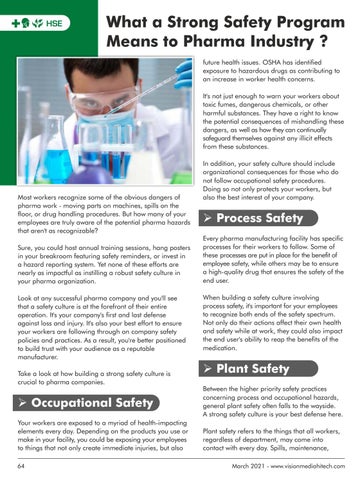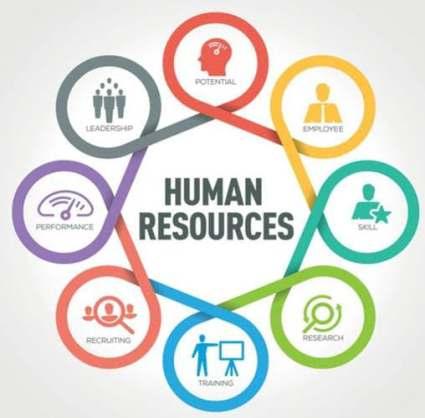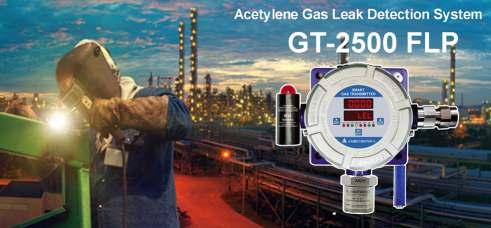What a Strong Safety Program Means to Pharma Industry ? future health issues. OSHA has identified exposure to hazardous drugs as contributing to an increase in worker health concerns. It's not just enough to warn your workers about toxic fumes, dangerous chemicals, or other harmful substances. They have a right to know the potential consequences of mishandling these dangers, as well as how they can continually safeguard themselves against any illicit effects from these substances.
Most workers recognize some of the obvious dangers of pharma work - moving parts on machines, spills on the floor, or drug handling procedures. But how many of your employees are truly aware of the potential pharma hazards that aren't as recognizable? Sure, you could host annual training sessions, hang posters in your breakroom featuring safety reminders, or invest in a hazard reporting system. Yet none of these efforts are nearly as impactful as instilling a robust safety culture in your pharma organization. Look at any successful pharma company and you'll see that a safety culture is at the forefront of their entire operation. It's your company's first and last defense against loss and injury. It's also your best effort to ensure your workers are following through on company safety policies and practices. As a result, you're better positioned to build trust with your audience as a reputable manufacturer. Take a look at how building a strong safety culture is crucial to pharma companies.
Occupational Safety Your workers are exposed to a myriad of health-impacting elements every day. Depending on the products you use or make in your facility, you could be exposing your employees to things that not only create immediate injuries, but also 64
In addition, your safety culture should include organizational consequences for those who do not follow occupational safety procedures. Doing so not only protects your workers, but also the best interest of your company.
Process Safety Every pharma manufacturing facility has specific processes for their workers to follow. Some of these processes are put in place for the benefit of employee safety, while others may be to ensure a high-quality drug that ensures the safety of the end user. When building a safety culture involving process safety, it's important for your employees to recognize both ends of the safety spectrum. Not only do their actions affect their own health and safety while at work, they could also impact the end user's ability to reap the benefits of the medication.
Plant Safety Between the higher priority safety practices concerning process and occupational hazards, general plant safety often falls to the wayside. A strong safety culture is your best defense here. Plant safety refers to the things that all workers, regardless of department, may come into contact with every day. Spills, maintenance, March 2021 - www.visionmediahitech.com





